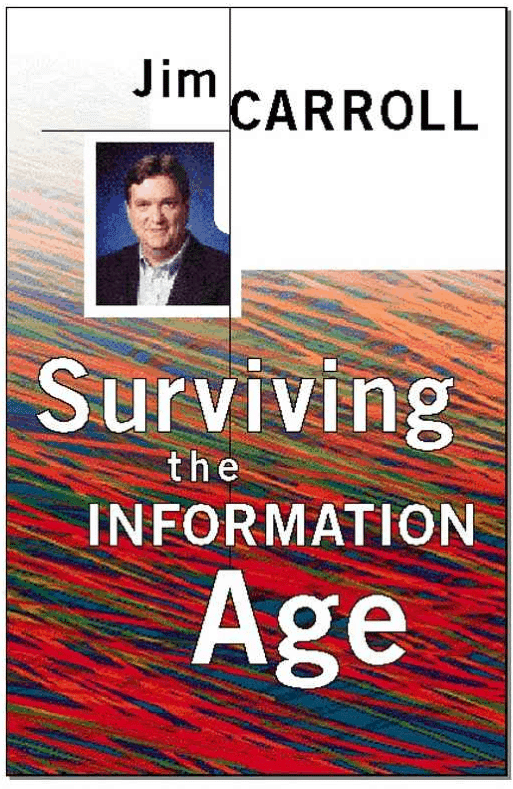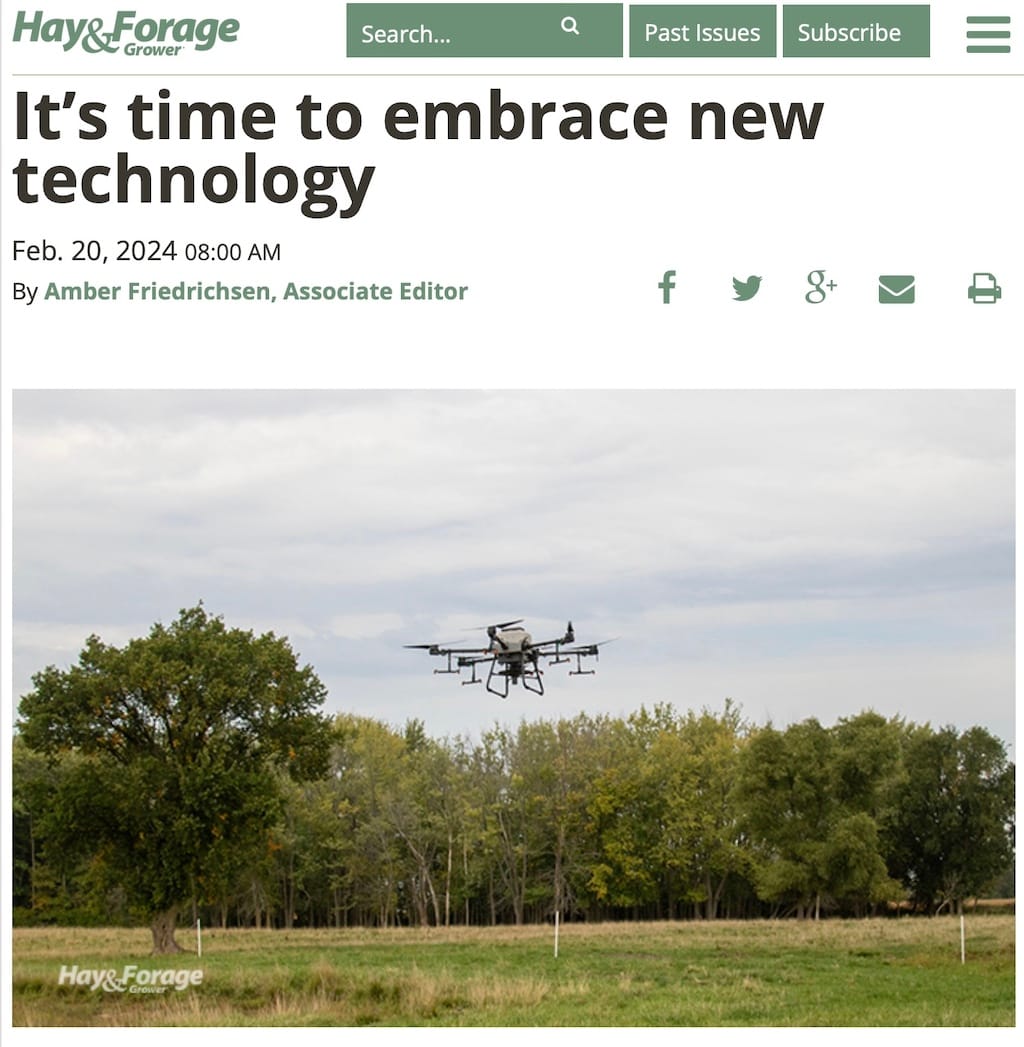"It's the era of multiple knowledge partners. Because you can no longer know it alone!" - Futurist Jim Carroll
Of all the books I've written, I am proudest of "Surviving the Information Age," which was co-written with my wife Christa. Brought to print in 1997, it's a work that looked back at the past of technology and the relationship people had to that point in time, but also involved a look forward to the trends that would define our future.

Wow! I don't mind saying that much of what I predicted became overwhelmingly true! Chapter 5 is a tour-de-force, predicting today's corporate structure: work location won't matter, people will choose lifestyle when making career decisions, the number of full-time jobs will dramatically shrink; and companies will hire the best talent regardless of where that person is located. Yup!
Within the book, I spoke of the nomadic organization - organizations that would work to get the right skills at the right time, for the right purpose, due to overwhelming complexity: with a resulting, increasing need for complexity partners. Simply put, knowledge, markets, skills, and requirements are evolving so rapidly that no organization can ever expect that it will possess all the skills that it will need in the future.
Surviving the Information Age lives on - it's available on Amazon!
22 years later, this remains one of the core messages that I bring to the stage because it has become overwhelmingly true. My recent talk at CattleCon 2024 took on this topic in the context of the accelerating knowledge and skills brought about by AI - spinning into the message from the book of 27 years ago but with an AI slant.
That section caught the attention of the folks at Hay & Forage Grower magazine, and I'll share their article in its entirety - since it's as good a summary as any of the points I was making on the stage. The key point is this - in a world of rapidly accelerating knowledge, you can no longer 'know it alone.' You need knowledge partners - the specialists who know as much as there is possible to know that you don't know, and who work with you to help you advance.
This is not something new in the agricultural sector - indeed, there have been 'agricultural coaches' within the industry for a long time - specialists who help farmers master all the new 'stuff' that surrounds their industry. But AI and accelerating trends are now putting a new emphasis on this requirement.
This isn't happening just within this particular sector - the explosion of new knowledge and new skills is happening in every single industry at a staggering speed.
You can no longer know it alone - the partners who know will help you to get to where you need to be going!

It’s time to embrace new technology
Hay & Forage, Feb. 20, 2024
“Think big, start small, and scale fast.” This was the advice Jim Carroll gave the audience at the Cattle Industry Convention in Orlando, Fla., about implementing new agricultural technology. From precision systems in pastures and hayfields to improved cattle genetics and autonomous equipment, forage and livestock producers can realize significant production gains by investing in the latest developments.
Carroll is a futurist and innovation expert who analyzes technological trends across the healthcare, manufacturing, and agricultural industries to help prepare people for the changes to come and motivate them to take part in the process. Three themes he used to define the future of agriculture were acceleration, artificial intelligence, and “just-in-time knowledge.”
Acceleration.
To illustrate the rate at which technology is advancing in agriculture and beyond, Carroll referred to the 1960s animated sitcom “The Jetsons.” He noted the cartoon characters living a century ahead of their time possessed devices that resemble today’s smartwatches, digital assistants, and drones — all of which we have access to today, nearly 40 years before the television show predicted.
Carroll emphasized the rate of technological acceleration and the importance of staying up to date. Prioritizing the implementation of new technologies — or at least the understanding of them — will help farmers be more efficient, and therefore, more profitable, regardless of their type of operation.
“The challenge with the future is that it’s fast, it’s relentless, and the pace of change never slows down,” Carroll said. “It’s our ability to keep up with this change that truly defines our success.”
Artificial intelligence.
Artificial intelligence is one of the most rapidly developing technologies on the market, and its role in the agricultural industry is quickly evolving. For example, Carroll described the growing ability of farmers to use artificial intelligence to identify crop diseases and specify pest damage by simply taking a picture. He explained that as more data is analyzed by artificial intelligence, the more accurate and precise the technology will become.
“We are on the edge of an era in which you will be able to take a picture of anything in the world around you, and by utilizing the machine vision capabilities and large language model technology, you can get an interpretation of what (that picture) means,” Carroll said.
This type of image generation will be instrumental in diagnosing diseases among livestock as well. Carroll noted the $2.1 billion spent on artificial technology in 2022 is expected to jump to $75 billion in 2030, which will include major investments from agricultural equipment manufacturers.
“Just-in-time knowledge.”
This was the term Carroll used to describe the pace at which new information is available and applicable to on-farm situations. New technologies and research findings are being used to refine best management practices for crop and livestock production faster than ever before, and farmers must assess how this information will impact their operations just as quickly.
“Our success will come from our ability to get the right knowledge, at the right time, for the right purpose,” Carroll said. “In the era of artificial intelligence, your ability to master the skill of just-in-time knowledge will become critical.”
To navigate this influx of new data, Carroll suggested farmers seek out knowledge partners, or industry experts who can help better manage specific aspects of an operation. He added that these advancements are constantly creating new careers and encouraged the audience to embrace assistance from a younger generation of agriculturalists.
“You can’t know everything there is to know because there are too many new ideas, technologies, methodologies, and genomics. You will have to rely on specialists to get things done,” Carroll asserted.
Futurist Jim Carroll recognized long ago that he would never know all there is to know.

